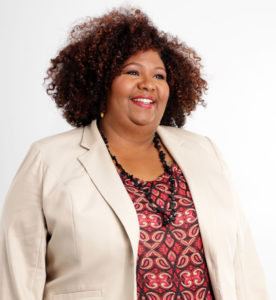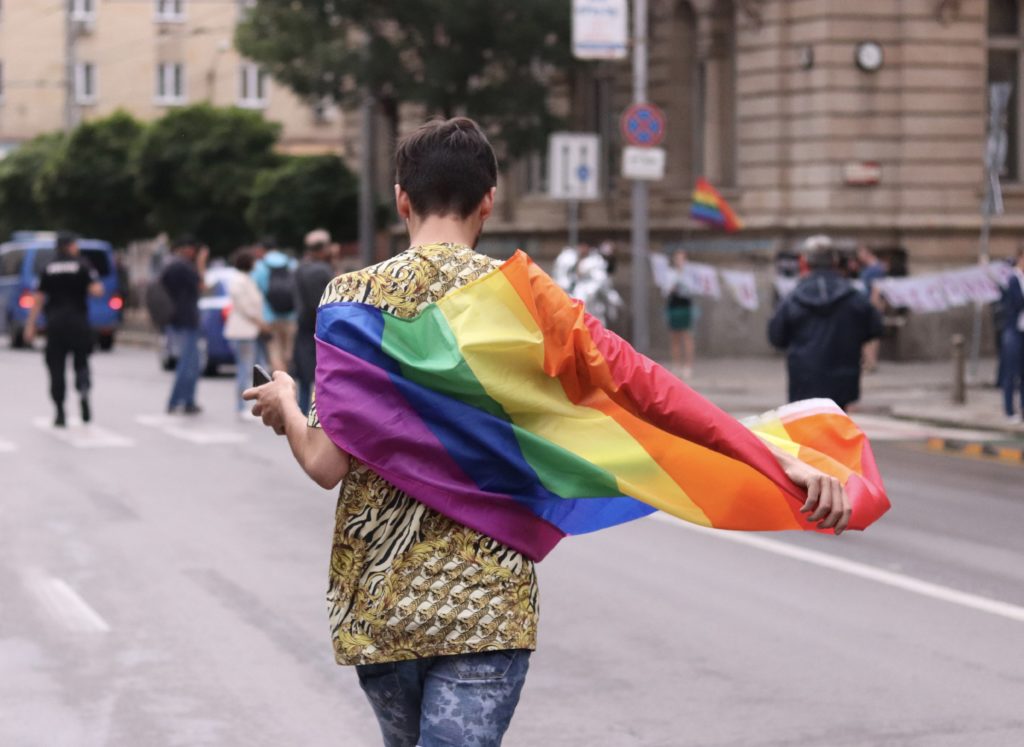 For this year’s Pride celebration, when community feels more important than ever, we have invited three colleagues to reflect on the past, present, and future of Pride and to offer their thoughts on the 50th anniversary of Pride events. We hope their reflections will help bring us together, to re-energize our movement, and inspire us to work toward ending oppression in all its forms. This piece is authored by Bianca Wilson, the Rabbi Zacky Senior Scholar of Public Policy at the Williams Institute. Her research focuses primarily on system-involved LGBTQ youth, LGBT poverty, and sexual health among queer women.
For this year’s Pride celebration, when community feels more important than ever, we have invited three colleagues to reflect on the past, present, and future of Pride and to offer their thoughts on the 50th anniversary of Pride events. We hope their reflections will help bring us together, to re-energize our movement, and inspire us to work toward ending oppression in all its forms. This piece is authored by Bianca Wilson, the Rabbi Zacky Senior Scholar of Public Policy at the Williams Institute. Her research focuses primarily on system-involved LGBTQ youth, LGBT poverty, and sexual health among queer women.
In the spirit of our celebration of PRIDE, I am taking my data scientist hat off and encouraging all of us in the varied LGBTQ+ communities to care a little less about the precision in our sexual identity, gender identity, and expression (SOGIE) labels.
Before this appears contradictory, let me reiterate that I think data collection is important. The fight for justice for LGBTQ+ youth involved in the foster care system must be mounted on many fronts. Data collection is one of those fronts. Knowing who is entering the system and who is achieving permanency matters for efforts towards equity. Knowing that the Trump Administration has fought so hard for years to (successfully) upend the progress made as it relates to foster care SOGIE data should also tell you it is an important part in the fight for justice. And, efforts to do this accurately and efficiently requires debates about which ways to ask the questions.
But, this is what data collection and survey questions asking about SOGIE will never do—it will never heal the pain of previous injustice. It will not replace the need to be seen by the adults who (should) care about us. It will not create the physical safety needed to thrive in this world. No one’s world is changed for the better because their most preferred label was used in a survey, So, as I look ahead to where the movement needs to go, it is to focus more on the intentional and structural harm being done every day against LGBTQ+ people, and so very much less on who is using the right words at all times to describe who we are. Am I saying words have no meaning or no effect? Of course not. But I would like us to differentiate better between the intentionality and impact of someone calling me queer (which I don’t love for myself because I use the terms lesbian, dyke, or femme) and someone calling me the n-word. Furthermore, how about telling the difference between someone calling us anything and someone creating policies that allow for anti-LGBTQ+ discrimination against foster youth and potential foster parents on religious grounds?
My hope for this point in history is that we become more precise in our analysis of structural roots of oppression and fixated on those that intend to do us harm. I also hope we can better target those structural and interpersonal changes needed for safety, economic stability, and happiness, and come to an agreement that battling over specific labels (as if the wrong ones are an act of violence) is not among the strategies to prioritize.
Read all of the reflections in the series:
- Pride 2020: Reflections on Past, Present, and Future, Bill Bettencourt, CSSP Senior Fellow
- Pride 2020: Centering Racial Justice, Nancy Polikoff, Professor Emerita American University Washington College of Law
- Pride 2020: Policies Over Labels, Bianca Wilson, the Rabbi Zacky Senior Scholar of Public Policy at the Williams Institute
- Pride 2020: Using Power and Privilege for Justice, Alan J. Dettlaff, Dean and Maconda Brown O’Connor Endowed Dean’s Chair at the University of Houston Graduate College of Social Work
